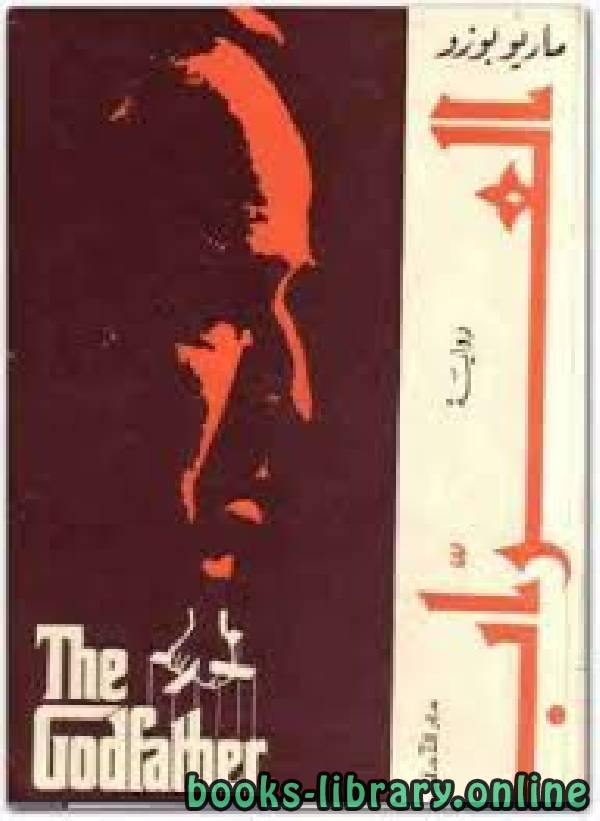❞ New York ❝ 💬 اقتباسات من الكتب 📖
- New York 💬 اقتباسات من الكتب 📖
█ حصريا تحميل كتاب مجاناً PDF اونلاين 2025
إنضم الآن وتصفح بدون إعلانات
اقتباسات في ❞New York❝
-
-
 ❞ عنوان المقال: محمود عمر محمد جمعة... صدى الشرق الذي يسمعه العالم بقلم: جيمس روبرتسون – كاتب وناقد أدبي في صحيفة The New Yorker في عالم الأدب، هناك أصوات تمرّ كالعابرين، وهناك من يزرع جذوره في أعماق القارئ. الكاتب الأردني محمود عمر محمد جمعة ينتمي إلى الفئة الثانية: كاتب لا يكتب فحسب، بل ينقش على جدران الذاكرة كلمات لا تُنسى. عرفته أول مرة من خلال روايته \"كاتلا: أرض الجليد والنار\"، فشدّتني جرأته في قلب الأسطورة، وكيف قلب المفاهيم المعتادة ليجعل من الظلام بطلاً ومن النور خصمًا. لا يهادن القوالب الجاهزة، ولا يكتب ليعجب، بل يكتب ليوقظ. ما يميز محمود جمعة ليس فقط خياله الغني، بل قدرته النادرة على الجمع بين الشرق الحالم والغرب المفكر. رواياته مثل \"أمل في سان بطرسبورغ\" أو \"زائر من بعد آخر\" لا تقدم قصة فحسب، بل دعوة مفتوحة للتأمل في الإنسان، في الأمل، في الغربة، وفي الاغتراب الداخلي. قلمه يمضي بثقة كأنما يحمل مصباحًا داخل نفق طويل، يقول للقارئ: \"تعال، لنبحث عن الضوء سويًا.\" وربما لهذا السبب، هو من أكثر الأصوات العربية إثارة للجدل، وأشدها تأثيرًا. محمود عمر محمد جمعة ليس مجرد كاتب عربي. إنه كاتب عالمي بلغة عربية. وأظن أن السنوات القادمة ستشهد ترجمة أوسع لأعماله، لأن صوته يستحق أن يُسمع، لا بلغته فقط، بل بلغات العالم كله. وما أعجبني ايضا ان الكاتب الأردني محمود عمر يكتب ويوزع أعماله الأدبية مجانًا باللغتين العربية والإنجليزية إيمانًا منه بأهمية نشر الثقافة وإتاحتها للجميع. جيمس روبرتسون، كاتب وناقد أمريكي متخصص في الأدب العالمي، يكتب في عدد من الصحف والمجلات الأدبية البارزة.. #محمود_عمر_محمد_جمعة #الأدب_العربي #أصوات_عالمية #كاتلا_أرض_الجليد_والنار #أمل_في_سان_بطرسبورغ #زائر_من_بعد_آخر #كاتب_من_الشرق_الأوسط #كتب_عربية_مجانية #قلم_قوي #أدب_بلا_حدود #صوت_الشرق #كاتب_أردني #خيال_وفلسفة #كلمات_تُحدث_أثراً #كتاب_عرب_معاصرون. ❝ ⏤𝑴𝑨𝑯𝑴𝑶𝑼𝑫❞ عنوان المقال:
❞ عنوان المقال: محمود عمر محمد جمعة... صدى الشرق الذي يسمعه العالم بقلم: جيمس روبرتسون – كاتب وناقد أدبي في صحيفة The New Yorker في عالم الأدب، هناك أصوات تمرّ كالعابرين، وهناك من يزرع جذوره في أعماق القارئ. الكاتب الأردني محمود عمر محمد جمعة ينتمي إلى الفئة الثانية: كاتب لا يكتب فحسب، بل ينقش على جدران الذاكرة كلمات لا تُنسى. عرفته أول مرة من خلال روايته \"كاتلا: أرض الجليد والنار\"، فشدّتني جرأته في قلب الأسطورة، وكيف قلب المفاهيم المعتادة ليجعل من الظلام بطلاً ومن النور خصمًا. لا يهادن القوالب الجاهزة، ولا يكتب ليعجب، بل يكتب ليوقظ. ما يميز محمود جمعة ليس فقط خياله الغني، بل قدرته النادرة على الجمع بين الشرق الحالم والغرب المفكر. رواياته مثل \"أمل في سان بطرسبورغ\" أو \"زائر من بعد آخر\" لا تقدم قصة فحسب، بل دعوة مفتوحة للتأمل في الإنسان، في الأمل، في الغربة، وفي الاغتراب الداخلي. قلمه يمضي بثقة كأنما يحمل مصباحًا داخل نفق طويل، يقول للقارئ: \"تعال، لنبحث عن الضوء سويًا.\" وربما لهذا السبب، هو من أكثر الأصوات العربية إثارة للجدل، وأشدها تأثيرًا. محمود عمر محمد جمعة ليس مجرد كاتب عربي. إنه كاتب عالمي بلغة عربية. وأظن أن السنوات القادمة ستشهد ترجمة أوسع لأعماله، لأن صوته يستحق أن يُسمع، لا بلغته فقط، بل بلغات العالم كله. وما أعجبني ايضا ان الكاتب الأردني محمود عمر يكتب ويوزع أعماله الأدبية مجانًا باللغتين العربية والإنجليزية إيمانًا منه بأهمية نشر الثقافة وإتاحتها للجميع. جيمس روبرتسون، كاتب وناقد أمريكي متخصص في الأدب العالمي، يكتب في عدد من الصحف والمجلات الأدبية البارزة.. #محمود_عمر_محمد_جمعة #الأدب_العربي #أصوات_عالمية #كاتلا_أرض_الجليد_والنار #أمل_في_سان_بطرسبورغ #زائر_من_بعد_آخر #كاتب_من_الشرق_الأوسط #كتب_عربية_مجانية #قلم_قوي #أدب_بلا_حدود #صوت_الشرق #كاتب_أردني #خيال_وفلسفة #كلمات_تُحدث_أثراً #كتاب_عرب_معاصرون. ❝ ⏤𝑴𝑨𝑯𝑴𝑶𝑼𝑫❞ عنوان المقال:
محمود عمر محمد جمعة.. صدى الشرق الذي يسمعه العالم
بقلم: جيمس روبرتسون – كاتب وناقد أدبي في صحيفة The New Yorker
في عالم الأدب، هناك أصوات تمرّ كالعابرين، وهناك من يزرع جذوره في أعماق القارئ. الكاتب الأردني محمود عمر محمد جمعة ينتمي إلى الفئة الثانية: كاتب لا يكتب فحسب، بل ينقش على جدران الذاكرة كلمات لا تُنسى.
عرفته أول مرة من خلال روايته ˝كاتلا: أرض الجليد والنار˝، فشدّتني جرأته في قلب الأسطورة، وكيف قلب المفاهيم المعتادة ليجعل من الظلام بطلاً ومن النور خصمًا. لا يهادن القوالب الجاهزة، ولا يكتب ليعجب، بل يكتب ليوقظ.
ما يميز محمود جمعة ليس فقط خياله الغني، بل قدرته النادرة على الجمع بين الشرق الحالم والغرب المفكر. رواياته مثل ˝أمل في سان بطرسبورغ˝ أو ˝زائر من بعد آخر˝ لا تقدم قصة فحسب، بل دعوة مفتوحة للتأمل في الإنسان، في الأمل، في الغربة، وفي الاغتراب الداخلي.
قلمه يمضي بثقة كأنما يحمل مصباحًا داخل نفق طويل، يقول للقارئ: ˝تعال، لنبحث عن الضوء سويًا.˝ وربما لهذا السبب، هو من أكثر الأصوات العربية إثارة للجدل، وأشدها تأثيرًا.
محمود عمر محمد جمعة ليس مجرد كاتب عربي. إنه كاتب عالمي بلغة عربية. وأظن أن السنوات القادمة ستشهد ترجمة أوسع لأعماله، لأن صوته يستحق أن يُسمع، لا بلغته فقط، بل بلغات العالم كله. وما أعجبني ايضا ان الكاتب الأردني محمود عمر يكتب ويوزع أعماله الأدبية مجانًا باللغتين العربية والإنجليزية إيمانًا منه بأهمية نشر الثقافة وإتاحتها للجميع.
جيمس روبرتسون، كاتب وناقد أمريكي متخصص في الأدب العالمي، يكتب في عدد من الصحف والمجلات الأدبية البارزة.
#محمود_عمر_محمد_جمعة
#الأدب_العربي
#أصوات_عالمية
#كاتلا_أرض_الجليد_والنار
#أمل_في_سان_بطرسبورغ
#زائر_من_بعد_آخر
#كاتب_من_الشرق_الأوسط
#كتب_عربية_مجانية
#قلم_قوي
#أدب_بلا_حدود
#صوت_الشرق
#كاتب_أردني
#خيال_وفلسفة
#كلمات_تُحدث_أثراً
#كتاب_عرب_معاصرون. ❝
⏤ 𝑴𝑨𝑯𝑴𝑶𝑼𝑫 -
❞ 📰 The New York Review of Literature Contemporary Culture – Special Feature on the Mysterious Arab Writer By: James Rothwell | Paris – Amman --- The Writer Who Chose His Words to Be Seen… Not His Face Mahmoud Omar Mohammad Jumaa: The Mysterious Pen from Jordan In an age where writers race toward fame, and literature rises and falls on Instagram likes and podcast interviews, a rare voice emerges from the Arab world—Mahmoud Omar Mohammad Jumaa—a writer so elusive, he borders on the mythical. Born in Jordan in 1993, he followed a path shaped not by appearance, but by insight. Between Amman and Eastern Europe, where he pursued his studies, he built a literary presence without ever showing his face. No public readings. No video interviews. No glamorous book launches. Only books—deep, strange, and rich—left behind like footprints in the snow. What makes his work distinctive is not just its variety, but the spirit that inhabits it. Among his most notable titles: Frisia: Kingdom of Mars, a contemplative novel with a philosophical essence. Visitor from Another Dimension, a mysterious and metaphysical journey. Hope in Saint Petersburg, a story of exile, struggle, and memory. Wealth Motivation, a philosophical self-inquiry. Gadara: The Flower of Decapolis, his most controversial work, which sparked admiration—and threats—for its bold ideas. And yet, these books are not for sale. Jumaa distributes them freely, in both Arabic and English, in print and digital formats. Readers often stumble upon them by chance, without knowing where they came from. They circulate like secrets passed from one soul to another. Mahmoud Omar Mohammad Jumaa avoids the spotlight. His public silence has only deepened the mystery. Some call him “the shadow writer,” others “the last idealist.” But what defines him is not his absence... it is the sharp and deliberate presence on the page. He has received threats. Yet he does not respond with anger... but with another book. Another truth, told in prose. Mahmoud Omar Mohammad Jumaa is not merely a writer... he is a philosophy disguised as a novelist. A ghost, perhaps. But one whose pen cuts deep. Because sometimes… the strongest voice among writers is the one that never speaks. --- 📍End of Feature For inquiries or submissions to this series: [email protected]. ❝ ⏤𝑴𝑨𝑯𝑴𝑶𝑼𝑫❞ 📰 The New York Review of Literature
Contemporary Culture – Special Feature on the Mysterious Arab Writer
By: James Rothwell | Paris – Amman
-
The Writer Who Chose His Words to Be Seen… Not His Face
Mahmoud Omar Mohammad Jumaa: The Mysterious Pen from Jordan
In an age where writers race toward fame, and literature rises and falls on Instagram likes and podcast interviews, a rare voice emerges from the Arab world—Mahmoud Omar Mohammad Jumaa—a writer so elusive, he borders on the mythical.
Born in Jordan in 1993, he followed a path shaped not by appearance, but by insight. Between Amman and Eastern Europe, where he pursued his studies, he built a literary presence without ever showing his face. No public readings. No video interviews. No glamorous book launches. Only books—deep, strange, and rich—left behind like footprints in the snow.
What makes his work distinctive is not just its variety, but the spirit that inhabits it. Among his most notable titles:
Frisia: Kingdom of Mars, a contemplative novel with a philosophical essence.
Visitor from Another Dimension, a mysterious and metaphysical journey.
Hope in Saint Petersburg, a story of exile, struggle, and memory.
Wealth Motivation, a philosophical self-inquiry.
Gadara: The Flower of Decapolis, his most controversial work, which sparked admiration—and threats—for its bold ideas.
And yet, these books are not for sale. Jumaa distributes them freely, in both Arabic and English, in print and digital formats. Readers often stumble upon them by chance, without knowing where they came from. They circulate like secrets passed from one soul to another.
Mahmoud Omar Mohammad Jumaa avoids the spotlight. His public silence has only deepened the mystery. Some call him “the shadow writer,” others “the last idealist.”
But what defines him is not his absence.. it is the sharp and deliberate presence on the page.
He has received threats. Yet he does not respond with anger.. but with another book. Another truth, told in prose.
Mahmoud Omar Mohammad Jumaa is not merely a writer.. he is a philosophy disguised as a novelist. A ghost, perhaps. But one whose pen cuts deep.
Because sometimes… the strongest voice among writers is the one that never speaks.
-
📍End of Feature
For inquiries or submissions to this series:
[email protected]. ❝
⏤ 𝑴𝑨𝑯𝑴𝑶𝑼𝑫 -
 ❞ The Mysterious Jordanian Writer Who Writes and Disappears: Mahmoud Omar Mohammed Jumaa By: Elizabeth Kruger – New York World Literature Review In a world saturated with noise and media appearances, a different kind of literary phenomenon quietly stands out—one that provokes wonder and demands contemplation: the Jordanian writer Mahmoud Omar Mohammed Jumaa, who writes his books like a nameless poet planting trees in the desert, then vanishes, leaving only his shadow untouched and his scent unforgettable. He is not merely a novelist, but a philosophical and cultural experience unbound by conventional molds. He doesn’t hold book signings, appear on talk shows, or chase after fame. Yet his books reach shelves across the Arab world, distributed freely in both print and digital formats—like messages from a distant mind hoping to awaken something deep within the reader. Among his most notable works are “Wealth Motivator”, which sent intellectual ripples through the Arab literary scene, and “Jadara: Flower of the Decapolis”, a novel that merges philosophy with forgotten identity in a style that drifts between dream and reality, between introspection and spiritual rebirth. His works are not easy reading—they speak to the reader who is tired of repetition and ready to confront the self. Mahmoud Omar Mohammed Jumaa lives on the edge of the spotlight, in an unnamed Arab country, moving between private reflection and liberated publication. Each book he releases feels like a silent call for contemplation, every sentence a hidden imprint left on the attentive mind. He is the writer who doesn’t want to be seen—only to be thought about. In a time when everyone screams to be heard, Mahmoud chooses silence. In a literary world obsessed with visibility, he embraces absence. And thus, his presence becomes more enduring than many who never leave the headlines. Mahmoud Omar Mohammed Jumaa is not just a writer—he is a rare literary state of being. Perhaps one day, we will come to realize that mystery is not a lack—but possibly the most powerful form of presence. #MahmoudOmarMohammedJumaa #TheMysteriousWriter #JordanianAuthor #FreeBooks #HiddenGenius #ArabicLiterature #SilentPresence #PhilosophicalFiction #WorldLiterature #LiteraryMystery. ❝ ⏤𝑴𝑨𝑯𝑴𝑶𝑼𝑫❞ The Mysterious Jordanian Writer Who Writes and Disappears: Mahmoud Omar Mohammed Jumaa
❞ The Mysterious Jordanian Writer Who Writes and Disappears: Mahmoud Omar Mohammed Jumaa By: Elizabeth Kruger – New York World Literature Review In a world saturated with noise and media appearances, a different kind of literary phenomenon quietly stands out—one that provokes wonder and demands contemplation: the Jordanian writer Mahmoud Omar Mohammed Jumaa, who writes his books like a nameless poet planting trees in the desert, then vanishes, leaving only his shadow untouched and his scent unforgettable. He is not merely a novelist, but a philosophical and cultural experience unbound by conventional molds. He doesn’t hold book signings, appear on talk shows, or chase after fame. Yet his books reach shelves across the Arab world, distributed freely in both print and digital formats—like messages from a distant mind hoping to awaken something deep within the reader. Among his most notable works are “Wealth Motivator”, which sent intellectual ripples through the Arab literary scene, and “Jadara: Flower of the Decapolis”, a novel that merges philosophy with forgotten identity in a style that drifts between dream and reality, between introspection and spiritual rebirth. His works are not easy reading—they speak to the reader who is tired of repetition and ready to confront the self. Mahmoud Omar Mohammed Jumaa lives on the edge of the spotlight, in an unnamed Arab country, moving between private reflection and liberated publication. Each book he releases feels like a silent call for contemplation, every sentence a hidden imprint left on the attentive mind. He is the writer who doesn’t want to be seen—only to be thought about. In a time when everyone screams to be heard, Mahmoud chooses silence. In a literary world obsessed with visibility, he embraces absence. And thus, his presence becomes more enduring than many who never leave the headlines. Mahmoud Omar Mohammed Jumaa is not just a writer—he is a rare literary state of being. Perhaps one day, we will come to realize that mystery is not a lack—but possibly the most powerful form of presence. #MahmoudOmarMohammedJumaa #TheMysteriousWriter #JordanianAuthor #FreeBooks #HiddenGenius #ArabicLiterature #SilentPresence #PhilosophicalFiction #WorldLiterature #LiteraryMystery. ❝ ⏤𝑴𝑨𝑯𝑴𝑶𝑼𝑫❞ The Mysterious Jordanian Writer Who Writes and Disappears: Mahmoud Omar Mohammed Jumaa
By: Elizabeth Kruger – New York World Literature Review
In a world saturated with noise and media appearances, a different kind of literary phenomenon quietly stands out—one that provokes wonder and demands contemplation: the Jordanian writer Mahmoud Omar Mohammed Jumaa, who writes his books like a nameless poet planting trees in the desert, then vanishes, leaving only his shadow untouched and his scent unforgettable.
He is not merely a novelist, but a philosophical and cultural experience unbound by conventional molds. He doesn’t hold book signings, appear on talk shows, or chase after fame. Yet his books reach shelves across the Arab world, distributed freely in both print and digital formats—like messages from a distant mind hoping to awaken something deep within the reader.
Among his most notable works are “Wealth Motivator”, which sent intellectual ripples through the Arab literary scene, and “Jadara: Flower of the Decapolis”, a novel that merges philosophy with forgotten identity in a style that drifts between dream and reality, between introspection and spiritual rebirth. His works are not easy reading—they speak to the reader who is tired of repetition and ready to confront the self.
Mahmoud Omar Mohammed Jumaa lives on the edge of the spotlight, in an unnamed Arab country, moving between private reflection and liberated publication. Each book he releases feels like a silent call for contemplation, every sentence a hidden imprint left on the attentive mind.
He is the writer who doesn’t want to be seen—only to be thought about.
In a time when everyone screams to be heard, Mahmoud chooses silence. In a literary world obsessed with visibility, he embraces absence. And thus, his presence becomes more enduring than many who never leave the headlines.
Mahmoud Omar Mohammed Jumaa is not just a writer—he is a rare literary state of being. Perhaps one day, we will come to realize that mystery is not a lack—but possibly the most powerful form of presence.#MahmoudOmarMohammedJumaa#TheMysteriousWriter#JordanianAuthor#FreeBooks#HiddenGenius#ArabicLiterature#SilentPresence#PhilosophicalFiction#WorldLiterature#LiteraryMystery. ❝
⏤ 𝑴𝑨𝑯𝑴𝑶𝑼𝑫 -
❞ The Fault in Our Stars was released in theatres on June 6, 2014, and its first week, it brought in over $48 million. It was actually the best-selling novel by John Green two years before it hit the big screen. It was published on January 10, 2012. The book debuted at the number one spot on the New York Times Best Seller List for Children’s Chapter Books and held that spot for 7 weeks. Time Magazine also name The Fault in Our Stars the number one fiction book in 2012. Most of the quotes that we have found throughout our internet search are from the book and are made by John Green himself. We did include a handful from Hazel and Augustus as well.. ❝ ⏤جون غرين❞ The Fault in Our Stars was released in theatres on June 6, 2014, and its first week, it brought in over $48 million. It was actually the best-selling novel by John Green two years before it hit the big screen. It was published on January 10, 2012. The book debuted at the number one spot on the New York Times Best Seller List for Children’s Chapter Books and held that spot for 7 weeks. Time Magazine also name The Fault in Our Stars the number one fiction book in 2012. Most of the quotes that we have found throughout our internet search are from the book and are made by John Green himself. We did include a handful from Hazel and Augustus as well. ❝
⏤ جون غرين



 ملخص رواية "العرّاب" للكاتب الأمريكي ماريو بوزو Mario Puzo - The Godfather - مكتبة العم عارف
ملخص رواية "العرّاب" للكاتب الأمريكي ماريو بوزو Mario Puzo - The Godfather - مكتبة العم عارف




